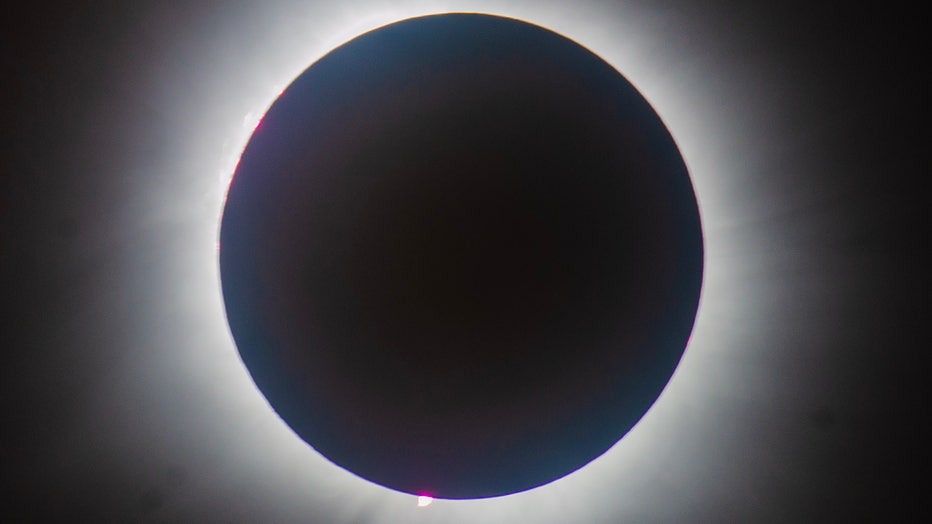Solar eclipse 2024: How to tell if you have a retinal burn from looking up
How to tell if you've caused eye damage looking at the eclipse
The 2024 eclipse has come and gone and while maybe you're left with a cool memory, the hope is that it didn't leave a lasting imprint on your eyes.
(FOX 2) - The 2024 eclipse has come and gone and while maybe you're left with a cool memory, the hope is that it didn't leave a lasting imprint on your eyes.
Don't look up- unless you have the eclipse glasses to protect your eyes - that's the warning we heard so many times. But Google says that after every eclipse, search terms like "eyes hurt" and "eye damage" peak.
As DMC Ophthalmologist Dr. Xihun Lin warned, if you look at the sun unprotected, that light can burn the back of your eye, your retina.
"You don't feel pain, inside the eye doesn't have any pain sensors," he said. "You end up getting essentially a blind spot, or a blurry spot.
"Oftentimes after an eclipse, we have patients come in from staring at the sun for too long, with some sort of blurry spot or missing part of their vision. Especially in this situation, sort of the center part of your vision - so it's very noticeable.
Eclipse eye damage symptoms can also include headache, light sensitivity and distorted vision.
Deena: "Is that fixable?"
"Generally not," said Dr. Lin. "Sometimes your eyes recover a little bit and the blind spot becomes less noticeable, but generally it's not fixable. It's like having a laser burn into your retina."
Technically it's called solar retinopathy. If you notice symptoms, go to the ophthalmologist to get diagnosed.
The good news is, even though there's no treatment, people can sometimes recover after several months.
If you missed the eclipse our next chance to see a total solar eclipse in the United States is 2044. Save those solar eclipse glasses to protect your eyes in 20 years.
The American Astronomical Society says modern eclipse glasses do not expire.

The 2024 solar eclipse at totality, seen from Hudson, Ohio. (Chris Boex / FOX photo) ( )

